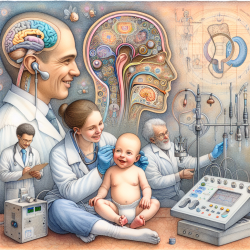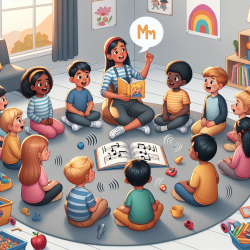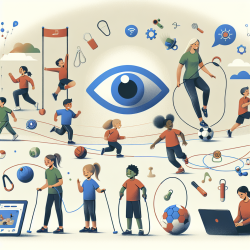As practitioners and educators in the field of special education and therapy, our mission is to ensure that all children, especially those with special needs, receive the early intervention necessary for optimal development. A significant aspect of this mission involves the early detection and management of hearing loss in newborns. The research article, The Rationale for Neonatal Hearing Screening, by Andree Durieux-Smith and JoAnne Whittingham, offers compelling evidence on the importance of neonatal hearing screening and its impact on children's subsequent language, social, and academic development.
Understanding the Impact of Early Detection
The study underscores a critical point: early identification of hearing loss is crucial. Children diagnosed with hearing loss by six months of age exhibit significantly better language development compared to those identified later. This early identification enables timely intervention, crucial for mitigating the adverse effects hearing loss can have on various aspects of a child's development.
Challenges in Early Hearing Loss Detection
Despite the clear benefits of early detection, the study reveals that a significant number of children with hearing loss are diagnosed late. The reasons are multifaceted, including lack of universal screening programs, reliance on risk-factor-based screening that misses half of the cases, and the variable quality of early intervention services. These challenges underscore the need for universal neonatal hearing screening programs, equipped with the right technology and followed by appropriate intervention services.
Screening Methods and Recommendations
The research advocates for the use of auditory brainstem response (ABR) testing as a reliable method for neonatal hearing screening. The findings also support the recommendations of the American Joint Committee on Infant Hearing, which include confirming a diagnosis of hearing loss by three months of age and enrolling the child in early intervention programs by six months.
Implementing Research Findings in Practice
For practitioners looking to enhance their skills and improve outcomes for children with hearing loss, this research offers several actionable insights:
- Advocate for Universal Screening: Work within your professional networks and communities to promote the implementation of universal neonatal hearing screening programs.
- Utilize ABR Testing: Ensure that screening programs use auditory brainstem response testing for accurate and reliable results.
- Focus on Early Intervention: Collaborate with families and other professionals to ensure that children diagnosed with hearing loss receive timely and effective intervention services.
- Continuous Professional Development: Stay informed about the latest research and best practices in early hearing loss detection and management through conferences, publications, and webinars.
By integrating these practices, educators and therapists can play a pivotal role in ensuring that children with hearing loss have the best possible start in life.
Conclusion
The research by Durieux-Smith and Whittingham provides a compelling case for the importance of neonatal hearing screening. As practitioners, embracing these findings and advocating for enhanced screening and intervention programs are vital steps towards improving the lives of children with hearing loss. Let's commit to these changes and ensure that all children receive the early support they need to thrive.
To read the original research paper, please follow this link: The Rationale for Neonatal Hearing Screening.










